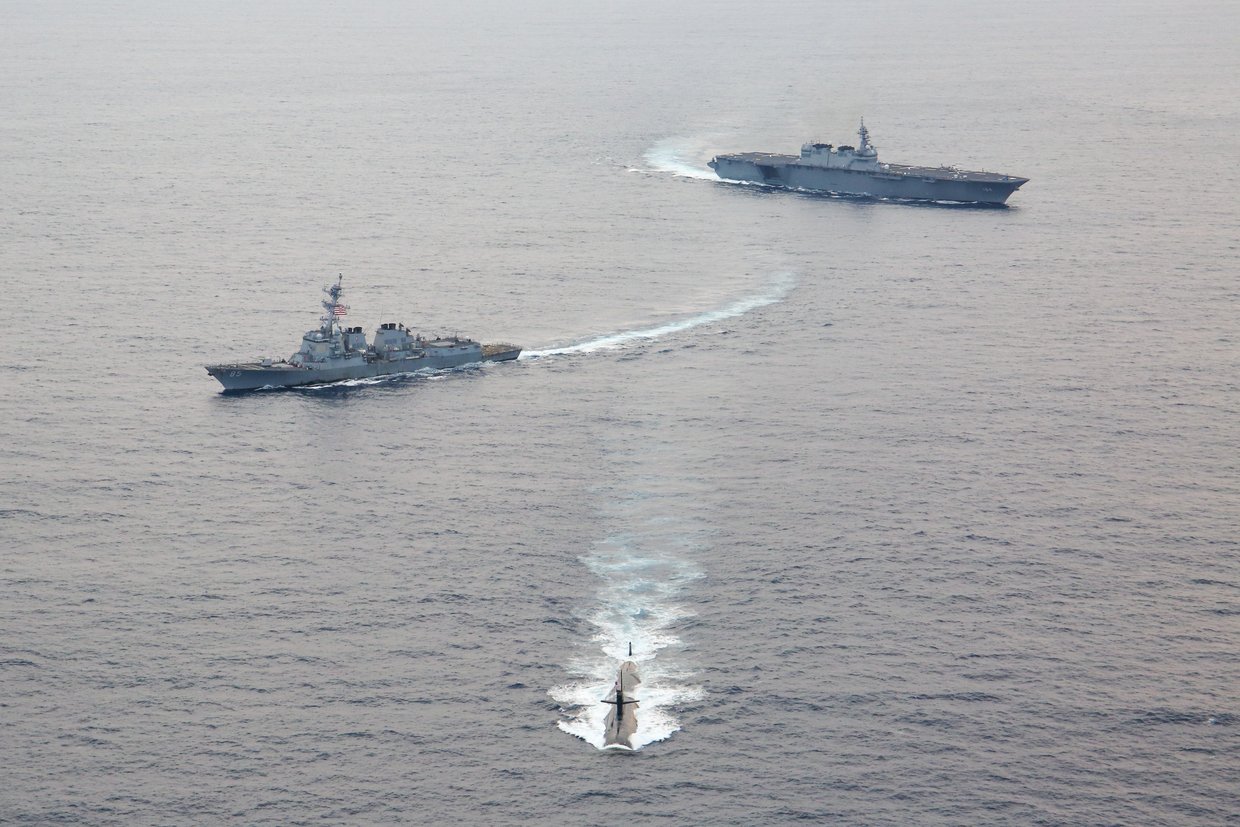Can an 'Asian NATO' deter Chinese ambitions in the Indo-Pacific?

As a new US-led alliance, a potential 'Asian NATO,' takes shape in the Indo-Pacific, Washington still has to motivate its regional allies to counter Beijing's ambition, which for them could mean damaging existing ties with China.
Like the actual NATO, the Quad – the Quadrilateral Security Dialogue between the United States, Japan, Australia and India – is also led by the US, although its inception could be traced to an idea in 2007 by the Japanese Prime Minister Shinzo Abe who sought to expand the scope of Japan's trilateral strategic dialogue involving Australia and the US, to include India. Although, at the time, New Delhi was still in the early stages of a reorientation away from its non-aligned past towards more robust strategic partnerships with the US and Japan, it seemed enthused with the idea, and in 2007 India invited Australia and Japan, along with Singapore, to participate in the Indo-US combined naval exercise, Malabar.
Back then, China, apparently alerted by the development, issued a demarche to all the four members of the Quad. That seemed to cause the desired effect, Australia, Japan, and Singapore were dropped from Malabar and Australia quietly withdrew from the dialogue. India also dismissed appeals from Japan and the US to revive the Quad, ostensibly in the hope of improving ties with China, and overall support for the Quad seemed to have declined.
A decade later, the Quad is seeing a resurgence. This time, India sought to revive the group after major differences with China over issues like China's Belt and Road initiative which goes through territory disputed by India, China's support for Pakistan, and Sino-India border clashes at Doklam. Japan was reinvited to take part in Malabar, and most recently, the first-ever meeting of the four foreign ministers, hosted by US Secretary of State Mike Pompeo, in September 2019, thus elevating the Quad from a forum for senior government officials to ministerial-level dialogue.
Is China counting on US allies' reluctance?
As the US proclaims shared values amongst the four states for a free and open Indo-Pacific and a reaffirmation of the Quad's commitment to common values and cooperation, India and Australia seem reluctant to antagonize China all the way.
For instance, the issue of joint patrols in the South China Sea, a key initiative by the US, and a move that would surely be regarded as a direct challenge to China's position in the region, has not gained traction with both New Delhi and Canberra. India has consistently rejected US proposals for joint patrols while Australia, which is delicately balancing its economic interests with Beijing (China received 34 percent of Australia's total exports in 2016) and its alliance partnership with the United States, has been evasive.
Which is perhaps why the Chinese response to the Quad has been relatively subdued, in contrast to how it stamped its feet in 2007. Instead of a confrontation, Beijing has signaled its intent to improve relations with India by hosting an informal summit between Prime Minister Modi and President Xi Jinping at Wuhan in 2018. A second informal summit was held at Mamallapuram, India in October 2019. Sino-India relations seem to be on an even keel for now.
And although the Quad, together with the Malabar series of exercises and other combined wargames between the partners, provides New Delhi with additional leverage to deal with an assertive China, India has taken care to "walk slowly" with the Quad to avoid overtly antagonizing Beijing.

Hallmarks of a budding military alliance
Discussions at the September ministerial meeting reportedly revolved around the Quad's collective efforts to advance a free and open Indo-Pacific, and also touched on counterterrorism, humanitarian assistance, disaster relief, maritime security cooperation, and cybersecurity. These are important developments and a precursor to enhanced military cooperation between the partners.
The other major development has been a strategic logistics support agreement between India and Australia, likely to be signed during the forthcoming visit of the Australian Prime Minister Scott Morrison to New Delhi in January 2020, and a similar agreement between India and Japan in advanced stages of negotiations. Significantly, India and the US have had a logistics sharing arrangement since 2018. All these agreements will allow the countries to use each other's military bases for logistics support, including food, water, and fuel. Clearly, the extent and depth of political engagements and alignment amongst the Quad states over military cooperation, and keeping the Indo-Pacific region free from Chinese domination, has reached unprecedented levels. But will this evolving 'Asian NATO' deter China from its assertive stance in the region?
All it takes is a careless escalation
Clearly, China is conscious of these realities and perhaps confident of its ties with India and Australia, which explains their muted response to the Quad. But, progress under the Quad, particularly in terms of building military compatibility, a key element in any security alliance, has been significant. Any escalation of regional tensions involving India and China or interference by an emboldened China in India's region of influence in the Indian Ocean or in the South Pacific in Australia's backyard, could drive both countries closer to the Quad. And when that happens, the Quad or the 'Asian NATO' could present a formidable deterrent to China.
Like this story? Share it with a friend!
The statements, views and opinions expressed in this column are solely those of the author and do not necessarily represent those of RT.














